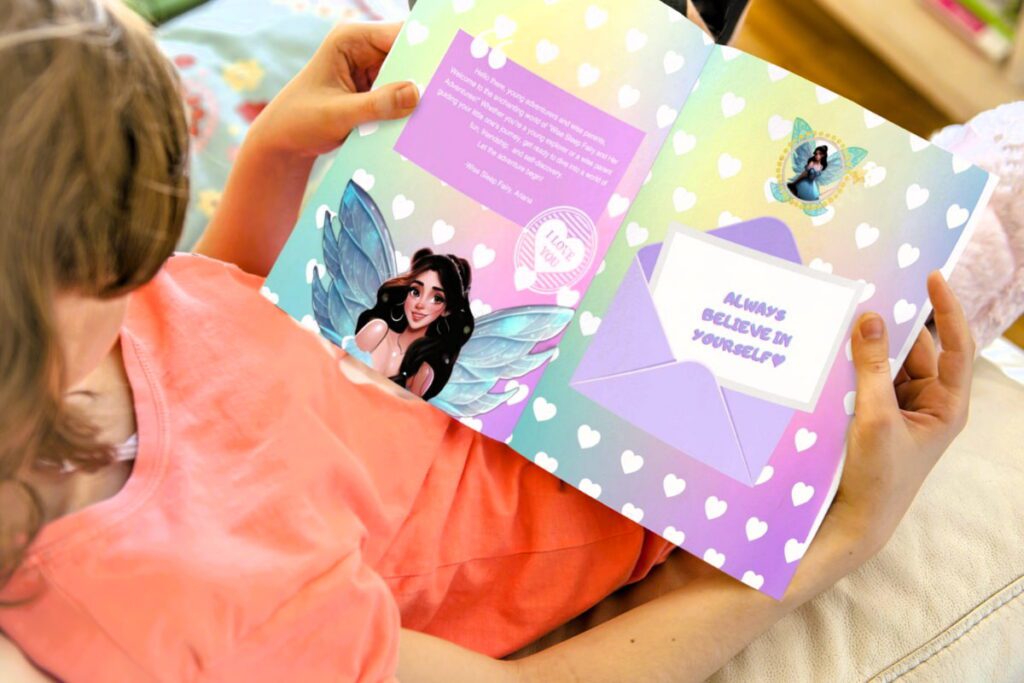As parents, you all want the best for their children. You strive to provide them with every opportunity to thrive and succeed in life. One crucial element that plays a significant role in a child’s development is the power of self-belief: Believe in Yourself. In this article, we will explore what self-belief is, the impact of self-belief on your child’s growth and success, its importance in children aged 1-8, and how it can be nurtured to unlock their full potential.
You’ll be amazed at what a little self-belief can do! Let’s get started!
Table of Contents
The Power of Self-Belief
Self-beliefis the confidence and trust that individuals have in their abilities and potential. It acts as a driving force, influencing one’s thoughts, actions, and overall outlook on life. In the realm of child development, the power of self-belief is particularly profound. Scientific studies consistently demonstrate that children with a strong sense of self-esteem are more likely to take on challenges, persevere in the face of difficulties, and ultimately achieve success in various aspects of their lives.
How Powerful is the Power of Belief?
Whether you thInk you can, or you thInk you can’t – you’re rIght
The power of self-belief cannot be overstated. Research has shown that the way children perceive themselves, their abilities, and the world around them can significantly impact their cognitive and emotional development. A positive self-belief system contributes to improved academic performance, enhanced social skills, and a greater ability to navigate life’s challenges.
Why is Self-Belief Important for Children?
Self-belief is the cornerstone of a child’s emotional well-being and resilience. It forms the basis for healthy self-esteem and a positive self-image. Children who believe in themselves are more likely to set and achieve goals, form positive relationships, and develop a strong sense of identity.

Is Self-Belief the Key to Success?
Absolutely. The connection between self-belief and success is evident in various aspects of life. Whether it’s academic achievements, sports, or creative pursuits, a child’s belief in their own capabilities can be the determining factor in reaching their full potential. Cultivating self-belief early on sets the stage for a lifetime of accomplishments and fulfillment. Because failure, an inevitable part of life, can be reframed with self-belief, turning setbacks into stepping stones toward success. Teaching children that failure is not an endpoint but a valuable lesson helps them keep going and ultimately achieve greatness.
The Importance of Self-Belief in 1-8 Years of Children
The early years of a child’s life are particularly crucial for the development of self-assurance. During this period, the subconscious mind is highly impressionable, and brain wave frequencies play a significant role in shaping a child’s perceptions and beliefs. Positive reinforcement, encouragement, and a supportive environment are vital in instilling a strong sense of self-esteem in these formative years.
The future belongs to those who belIeve In the beauty of theIr dreams
How to Grow Children’s Self-Belief?
- Encouragement and Positive Reinforcement: Acknowledge and celebrate your child’s efforts and achievements, no matter how small. Positive reinforcement builds confidence and fosters a positive self-image.
- Foster Love: Create an atmosphere of warmth and support by regularly letting the child know they are cherished and esteemed. Take a moment to casually express love without any specific reason—simple gestures like saying “I love you” can be incredibly impactful in making them feel valued and secure. It’s these spontaneous affirmations that contribute to building a foundation of self-belief.
- Set Realistic Goals: Help your child set achievable goals, gradually increasing the level of difficulty as they grow. Success in reaching these goals enhances their self-belief.
- Provide Opportunities for Decision-Making: Allowing your child to make choices fosters a sense of autonomy and reinforces the idea that their opinions and decisions matter.
- Cultivate a Growth Mindset: Teach your child that challenges are opportunities for growth. Emphasize the importance of effort, perseverance, and learning from mistakes.
Benefits of Self-Belief in Children
- Academic Success: Children with a strong sense of self-belief are more likely to excel academically, as they approach challenges with confidence and a positive mindset.
- Creativity: Self-belief extends beyond academic pursuits, influencing creativity as well. When children have confidence in their ideas and abilities, they feel empowered to express themselves creatively. Think of renowned artists like Picasso, whose self-belief propelled them to push boundaries and bring unique visions to life.

- Emotional Resilience: Self-belief acts as a buffer against stress and adversity, helping children cope with life’s challenges more effectively. Moreover, emotional intelligence, crucial for a child’s well-being, finds a critical ally in self-belief. Children who believe in themselves develop a positive self-image and better manage their emotions, leading to improved overall well-being.
- Confidence: Confidence, akin to a superpower for children, becomes a catalyst for achievement when rooted in self-belief. Extensive research supports the notion that self-belief is a fundamental building block for fostering confidence. By nurturing a positive self-image, parents lay the groundwork for their child’s future successes.
- Positive Social Relationships: Self-belief contributes to positive social interactions. Encouraging children to embrace their unique qualities empowers them to fosters healthy relationships, founded on mutual respect and self-assurance. Because they feel more at ease engaging with others.
- Motivation and Initiative: Children with self-belief are more motivated and inclined to take initiative in various aspects of their lives. Because children who trust in their abilities, are more prone to set higher goals and work persistently.
- Overcome Challenges: Resilience, a vital life skill, finds its roots in self-belief. Children armed with self-confidence are better equipped to handle setbacks and emerge stronger. Encouraging a mindset that views obstacles as opportunities for growth reinforces resilience, highlighting a child’s capabilities and fostering an enduring mindset.
Wise Sleep Fairy and Her Adventures: Believe in Yourself
One powerful tool in nurturing self-belief in children is the “Believe in Yourself” children’s book. This beautifully crafted book is designed to engage young minds and instill positive messages about self-belief through captivating stories and vibrant illustrations. Grounded in science-backed life lessons, the book promotes the development of a healthy self-belief system in children.
Real-Life Examples
There are many real-life examples of individuals who believed in themselves against all odds serve as powerful inspirations for children. These figures demonstrate the power of self-belief on achieving extraordinary success:
- Walt Disney: Faced with numerous setbacks and rejections, Disney believed in his vision of creating a magical world of animation. Today, Disney is a global entertainment giant.
- Thomas Edison: Despite facing thousands of failures while inventing the light bulb, Edison never wavered in his self-belief. His perseverance and belief in his ideas revolutionized the world of technology. He said, ‘I have not failed. I’ve just found 10,000 ways that won’t work.’
- J.K. Rowling: Before becoming a household name with the Harry Potter series, Rowling faced rejection from multiple publishers. Her unwavering belief in her story eventually led to one of the most successful book franchises in history.
- Oprah Winfrey: Overcoming a challenging childhood and early setbacks in her career, Oprah’s belief in herself and her ability to connect with people propelled her to become a media mogul and influential philanthropist.
- Malala Yousafzai: Despite facing threats for advocating girls’ education, Malala stood firm in her belief. Her courage earned her the Nobel Peace Prize, making her a global symbol for education and human rights.
Many examples like these illustrate that self-belief is a common trait among those who achieve greatness. By trusting in their abilities and staying true to their visions, these individuals overcame challenges and left a permanent mark on the world.
Conclusion
Embrace the magIc of dreams, for wIthIn them, the WIse Sleep FaIry whIspers the most enchantIng truth: BelIeve In yourself, and watch your dreams take flIght
Believing in oneself is the key to unlocking a child’s full potential. As parents, you play a crucial role in shaping our children’s beliefs and fostering an environment that encourages self-confidence and resilience. The early years are a critical time for laying the foundation of self-belief, and by incorporating positive reinforcement, goal-setting, and supportive resources, you can empower our children to embrace their unique abilities and confidently navigate the journey of life. Remember, you are your child’s biggest cheerleader! In this regard, the enchanting tale of ‘The Wise Sleep Fairy and her Adventures: Believe in Yourself‘ will be your companion in your child’s journey of self-belief, guiding them to embrace their inner strength and believe in themselves.
To light up the path to each child’s bright future, let’s plant the seed of self-belief with love, care, and an unshakable belief that every child holds the potential to achieve amazing things.

